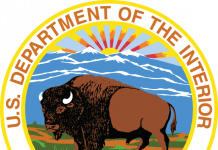750,000 Indiana customers may be eligible for refund
INDIANPOLIS – Attorney General Greg Zoeller announced Indiana’s involvement in two more multi-state settlements with major mobile phone carriers – Sprint and Verizon – resolving allegations that the companies placed unauthorized charges for third-party services on peoples’ cell phone bills, a practice known as “mobile cramming.†Zoeller announced similar settlements with AT&T and T-Mobile in 2014.
An estimated 750,000 Indiana customers of Sprint and Verizon combined may be eligible for refunds that could exceed $120 million nationally.
Indiana is joined in the Sprint and Verizon settlements by the attorneys general of the other 49 states and the District of Columbia, the Consumer Financial Protection Bureau and the Federal Communications Commission (FCC).
Phone customers who have been “crammed†often have charges, typically $9.99 per month, for “premium†text message subscription services (also known as “PSMS†subscriptions) such as horoscopes, trivia, and sports scores that the consumers have never heard of or requested. All four mobile carriers announced they would cease billing customers for commercial PSMS in the fall of 2013.
“These collective settlements with the major cell phone providers for alleged mobile cramming will hopefully prevent overcharging schemes like this from occurring again,†Zoeller said. “However, people should always be on the lookout for unfair or deceptive billing practices. Read and understand the terms and charges of your monthly bills with all of your service providers. If something isn’t right, work with your provider to get it fixed or, if that doesn’t work, file a complaint with our office.â€
Under the terms of the settlements, Sprint will pay $68 million and Verizon will pay $90 million. Of these amounts, Sprint and Verizon are required to provide $50 million and $70 million, respectively, to customers who were victims of cramming. Sprint and Verizon will each distribute refunds to harmed consumers through redress programs that will be under the supervision of the Consumer Financial Protection Bureau. Sprint will also pay $12 million to the participating states and $6 million to the FCC, while Verizon will pay $16 million to the states and $4 million to the FCC.
Sprint and Verizon customers who believe they were “crammed†can submit claims under the redress programs by visiting www.SprintRefundPSMS.com and/or www.CFPBSettlementVerizon.com. On those websites, consumers can submit claims, find information about refund eligibility and how to obtain a refund, and can request a free account summary that details PSMS purchases on their accounts. Individuals with questions about the redress programs can visit the program websites or call the settlement administrators at: (877) 389-8787 (Sprint), and/or (888) 726-7063 (Verizon).
The settlements, like the settlements entered into by AT&T and T-Mobile in late 2014, require Sprint and Verizon to stay out of the commercial PSMS business – the platform to which law enforcement agencies attribute the lion’s share of the mobile cramming problem. Under each of the four settlements, the carriers, including Sprint and Verizon, must also take a number of steps designed to ensure that they only bill consumers for third-party charges that have been authorized, including the following:
·         The carriers must obtain consumers’ express consent before billing consumers for third-party charges, and must ensure that consumers are only charged for services if the consumers have been informed of all material terms and conditions of their payment;
·         The carriers must give consumers an opportunity to obtain a full refund or credit when they are billed for unauthorized third-party charges;
·         The carriers must inform their customers when they sign up for services that their mobile phone can be used to pay for third-party charges, and must inform consumers of how those third-party charges can be blocked if the consumers do not want to use their phone to pay for third-party products; and
·         The carriers must present third-party charges in a dedicated section of consumers’ mobile phone bills, must clearly distinguish them from the carrier’s own charges, and must include in that same section information about the consumers’ ability to block third-party charges.
Under the court ordered agreements, Indiana received $451,937.81 for its participation in the Sprint and Verizon settlements ($193,663.88 from Sprint, $258,273.93 from Verizon)Â to be deposited in the Consumer Protection Fund for use in future consumer protection enforcement, education, litigation or restitution.




